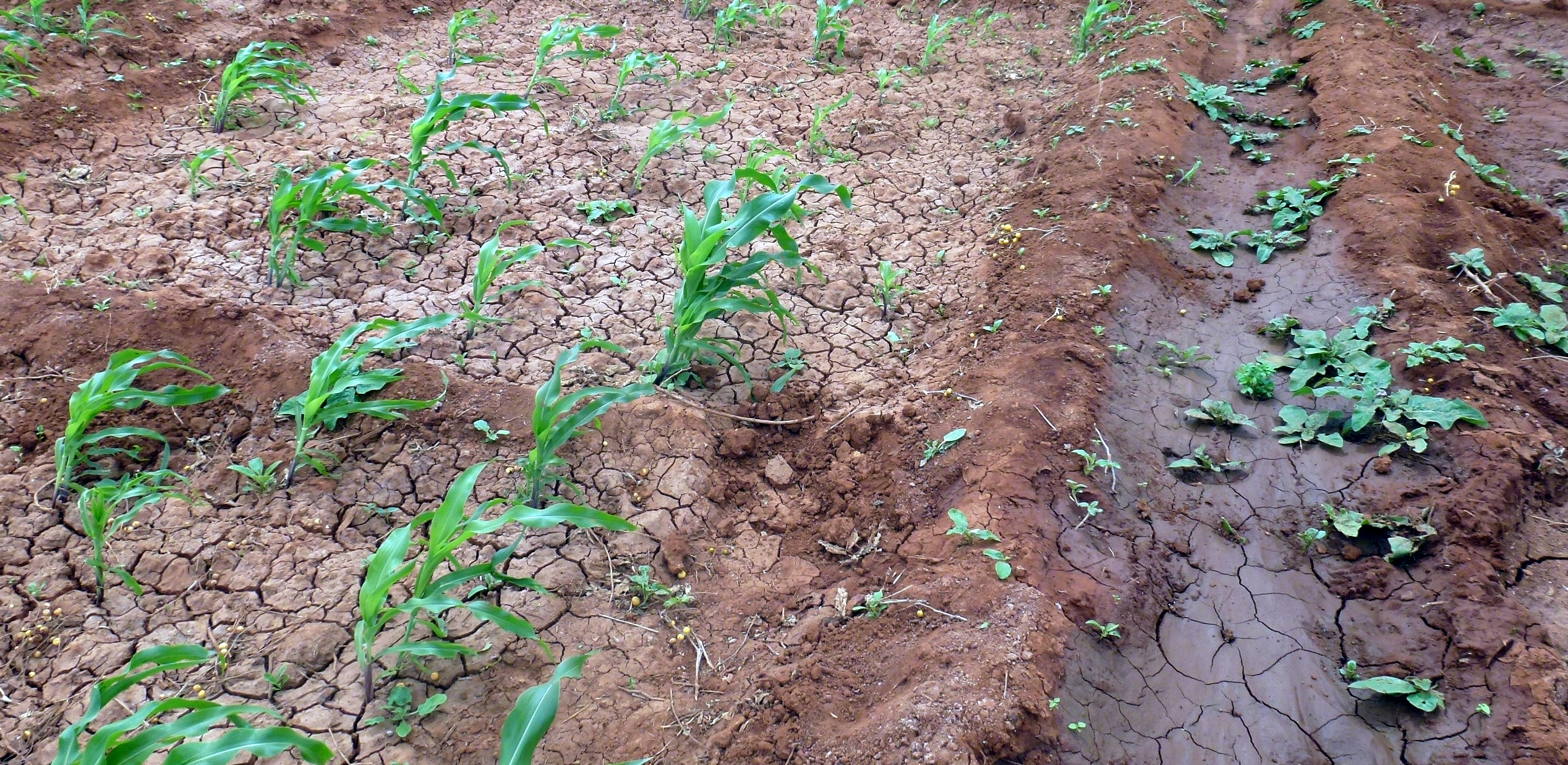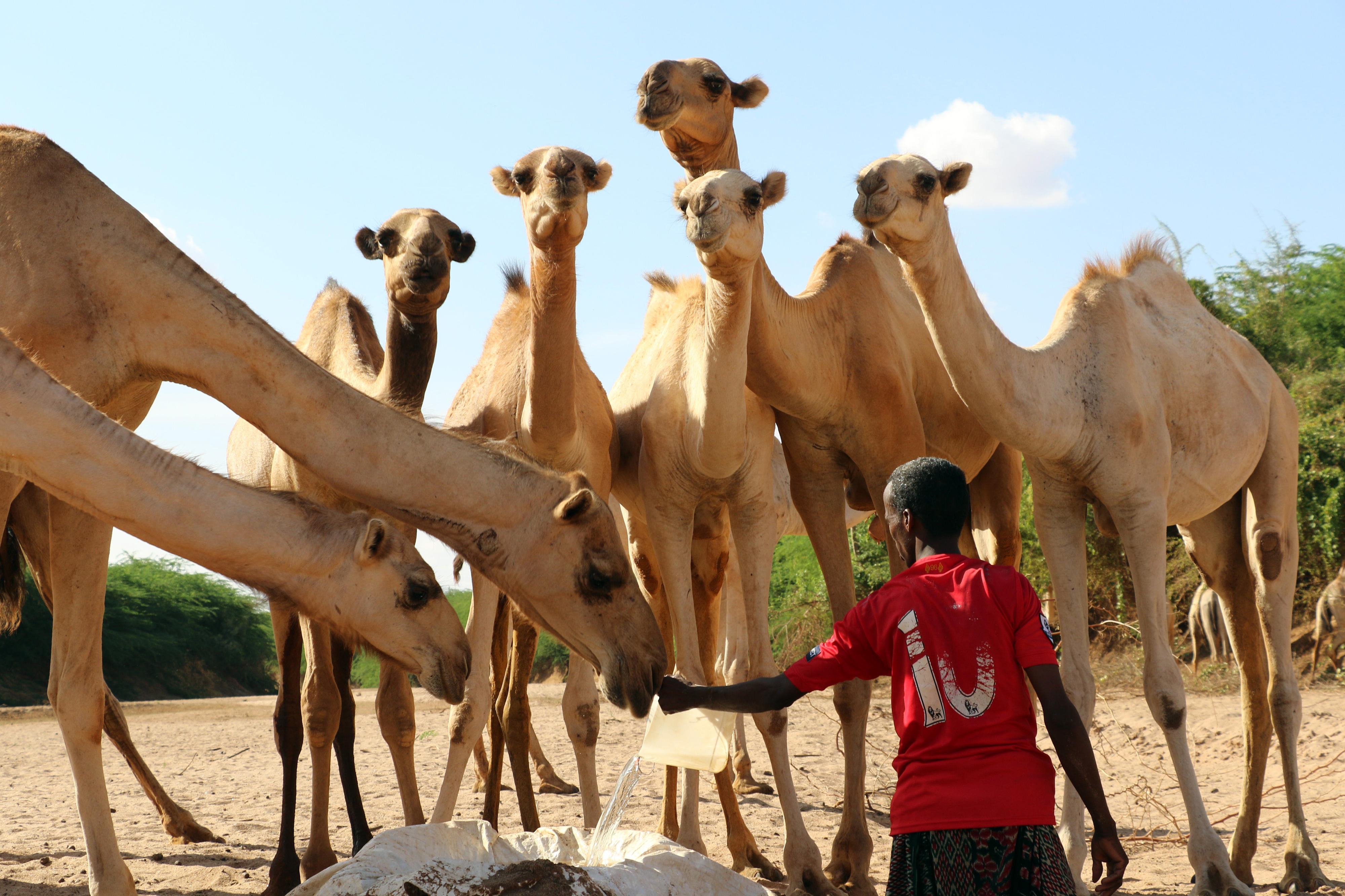Young maize plants in Somalia
Copyright© EU/ECHO/Michele Schivo, via flickr, CC BY-SA 2.0
Core area “Transformation of agricultural and food systems” Adapting agriculture to climate change
In addition to armed conflicts, natural disasters like droughts and floods have been driving more and more people in Somalia out of rural regions and into the towns and cities. At the same time, however, the rapidly growing population needs to be supplied with food.
In collaboration with national partners, non-governmental organisations and the local population, land use plans are being drawn up, new methods of crop and livestock farming are being established, agricultural value chains are being developed and measures for the sustainable use of water resources are being implemented. On behalf of the BMZ, GIZ is supporting the introduction of agricultural production methods that take the impacts of climate change into account, reduce soil degradation and encourage efficient water use.
In Somalia, people mainly farm livestock, only about 20 per cent of them earn their living by growing crops. Fruit and vegetables are mostly imported from neighbouring countries. The BMZ is supporting farmers in their efforts to grow more crops, reduce post-harvest losses, market their products successfully and identify new market opportunities. At training sessions, these farmers share their knowledge and experiences with other farmers.
A farmer in Somalia with his camels
As at: 16/08/2022

